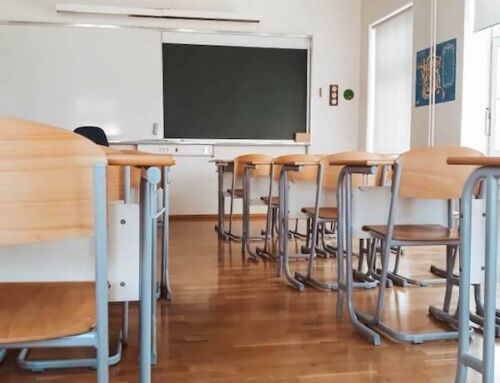Funding Will Provide New Water Fountains in 87 Schools
BOSTON — Friday, November 6, 2020 — On Friday, October 30, the United States Environmental Protection Agency (EPA) awarded $6.215 million in grant funding to a Boston Public Schools (BPS) program that provides new, filtered water fountains and bottle filling stations to schools. Along with matching funds from the BPS capital budget, this grant will be used to purchase, install, and routinely test the new equipment, which will also reduce the school district’s carbon footprint.
“We are so appreciative of this incredible grant, which will build on prior investments to provide cleaner, healthier school environments and improve equitable drinking water access for Boston Public Schools students, families, and staff,” said BPS Superintendent Brenda Cassellius. “This funding will help BPS continue to meet state and federal guidelines, reduce environmental impacts, accommodate school preference for filtered bottle refill stations, and promote the overall health and well-being of our community.”
Over the next 3 years, BPS will install 1,400 new fountains and bottle filling stations in schools that currently rely on 5-gallon water coolers and plastic cups for drinking water. The 87 buildings included in the project house schools, community centers, and BPS Welcome Centers. In the 2019-2020 school year, these schools served 35,211 students, approximately 66.3% of students in the district. Over 5,500 teachers and staff also work in these proposed sites.
The grant is part of a larger EPA initiative to remove sources of lead in drinking water, particularly in disadvantaged communities, schools, and child care facilities, through awarding over $40 million in federal funding under the Water Infrastructure Improvements for the Nation Act. BPS is one of ten grantees.
“EPA is proud to further support our state and local partners’ critical work to reduce childrens’ exposure to lead levels in drinking water by replacing water fountains and installing filtered bottle filling stations which work to Get the Lead Out,” said EPA New England Regional Administrator Dennis Deziel. “These projects will result in tangible and lasting benefits by significantly advancing health protections for children, our most vulnerable population, with a focus on Boston and disadvantaged communities across Massachusetts.”
This award is a huge win for the BPS Facilities Management Department, which has worked diligently to remediate lead exposure in school drinking water since the 1980s. When elevated levels of lead were discovered in 2016, BPS created a vital BPS Water Access Policy that requires annual testing of all sources of drinking water and water used for food preparation, immediate deactivation of any sources with elevated lead levels, and the implementation of a comprehensive communication protocol.
Recent test results have shown amazing improvements. Out of 733 units tested across 80 schools in 2019, less than 0.7% of samples had lead or copper exceedances–down from 12% in 2016. The Massachusetts Department of Environmental Protection now uses BPS policy and procedures as a model for the state’s public school systems.
Before applying for the grant, the Facilities Management team also successfully piloted a small-scale water fountain installation program, switching 17 schools from bottled water to new fountains and bottle refill stations. In order to be eligible for the grant, a commitment of matching funds had to be made by the district. Mayor Walsh and the City of Boston are investing $10.34 million of BPS funds over these next three years, which further demonstrates that equitable drinking water access is a priority for the City. Now, with the support of the EPA as well as the City of Boston, BPS can extend the project to additional schools, ensuring an even greater reduction in lead exposure and its associated harms.
By cutting back on plastic bottles, paper waste, and transportation emissions, switching from bottled water to bottle refill stations will also reduce the school district’s carbon footprint. Additionally, according to the 2018 Harvard T.H Chan School of Public Health BPS Water Study, this change will lead to an increase in the amount of water students and staff drink daily, and an increase in related, positive health outcomes.
“We are excited to continue and expand our work to reduce lead levels in drinking water, because it will provide a healthier and more equitable environment for all students, families, community members, and staff that use our school buildings,” said BPS Sustainability and Environmental Resources Manager Katherine Walsh, who is also the manager of the water fountain project and wrote the EPA grant with Russell Hanson, former BPS Sr. Manager of Foundation & Corporate Relations. With 72% of students considered low-income, equitable access to clean drinking water continues to be a priority for the school district, Mayor Walsh, and the City of Boston.
Maureen Dahill is the editor of Caught in Southie and a lifelong resident of South Boston sometimes mistaken for a yuppie. Co-host of Caught Up, storyteller, lover of red wine and binge watching TV series. Mrs. Peter G. Follow her @MaureenCaught.




